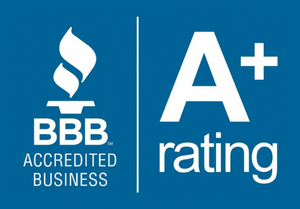Surveillance, in the most basic terms, means watching something or someone with suspicion. It is one of the most frequent services and abilities in the private investigation business. Most surveillance investigators will closely follow a person or watch a location for a lengthy amount of time until they are confident they have an accurate view of what’s going on. Surveillance is a way to watch for unusual or possibly harmful activity, typically by following someone closely. This can help companies avoid being taken advantage of.
Video surveillance footage, or a sort of digital surveillance, will be recorded by an investigator to gather evidence for the case. Digital surveillance is a more recent form of monitoring; however, physical observation is still one of the most popular methods for private investigators.
To conduct successful surveillance, you need excellent observational abilities and a thorough understanding of the area, suspect, and possible crimes.
Surveillance investigators employ a variety of methods to observe a person or group. Video surveillance equipment, a tiny video camera that does not attract attention to the investigation, or finding a location where the investigator cannot be seen are all important aspects of obtaining video recordings. The main goal of surveillance investigators is to discover evidence, as with a stakeout. If a business suspects that an employee is talking to or trading information with rivals, for example, a surveillance operation might capture where people go, what they do, and who they talk to.
Private investigators use surveillance equipment, strong observational skills, and patience to help you build evidence for your case. Companies don’t have a lot of time to investigate these matters themselves, so it’s best to speak with someone who can carry out accurate reports that can be used in court. Skilled private investigators like Dave Johnson Investigations collaborates with customers to create a unique strategy for obtaining evidence correctly and successfully.
For example, a private investigator might be summoned to determine if an act of theft, fraud, or false sickness has transpired or is occurring. Private investigators can use video and voice recordings to get evidence of an individual’s whereabouts or activities that contradict what they agreed to in their employment contract. This process usually takes some time and might require other methods, like interviews, to collect information for the case.
Employees might take advantage of a firm without their knowledge, from insurance fraud to theft. Companies may have difficulty proving if any dishonesty is taking place; surveillance investigation techniques can provide close monitoring on an individual to verify if they are in fact being dishonest. This can help protect a company’s information, save money, and keep them safe from exploitation. Hiring a surveillance investigator can assist you in detecting dishonest employees.
A private investigator uses a variety of methods to conduct investigations. This specialist is generally engaged in attempting to keep track of the subject of an inquiry while remaining undetectable himself. A surveillance investigator may perform research relevant to a case and create reports in order to understand how an investigation is progressing and document its progress. In some cases, a private investigator may also testify about his findings in court.
A private investigator uses his powers of observation to research a topic. He may also apply various types of surveillance equipment to help him accomplish this task. Apart from investigating corporations, for example, suppose that a suspicious spouse hires a private investigator to track his wife because he thinks she is cheating on him. The investigator would then document her whereabouts and the people she associates with. If any suspicious activity occurs, the investigator would provide photographic or video evidence along with a full report back to the person who hired him/her.

